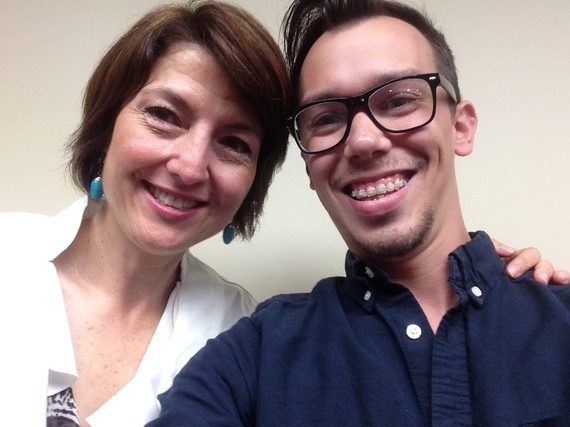Since becoming the President of Spokane's Interfaith Council, I have found that the best way to bring people together is to meet them. I regularly meet with Spokane's religious leaders one-on-one as well as community leaders in an effort to hear concerns and help build our community's ties to one another.
After a year of visits in coffee shops and walks through our beloved Riverfront Park, I had a meeting last month with someone I didn't expect. I found myself in a windowless room with 12 male pastors and my Congresswoman, Cathy McMorris-Rodgers (R-WA).
Cathy McMorris-Rodgers is currently chair of the House Republicans Conference and has been representing Eastern Washington since 2005. She has recently been in the news as a possible top contender for the majority-leader role in the leadership shuffle following House Speaker John Boehner's resignation announcement . She also delivered the 2014 Republican Response to the President's State of the Union.
To keep up to date on the concerns of the faith community, the Congresswoman meets with leaders to discuss ways of making the Inland Northwest a better place. Because of my many meetings, I attend to update her on the extended faith community.
After an opening prayer, I listened as the pastors debated the merits of not paying taxes as protest the Supreme Court's decision on gay marriage, and the funding of Planned Parenthood. Then, we had a teleconference with the Congresswoman's friend Dr. Chuck Harding, of Awake America Ministries . Dr. Harding spoke at length calling on God's people, specifically independent Baptists, to live more Biblically, as well as lead a discussion on Obamacare leading us towards Biblical ruin and away from God.
I try to stay away from topics like this because I think we have more important topics to discuss when it comes to building community. But then someone added that the current White House was trying to erode religious freedom in America, and another suggested President Obama was trying to outlaw Christianity. Many people nodded.
Dr. Harding spoke about all Americans living their faith, as is their Constitutional right, and challenged us to encourage others to do the same. That's when I raised my hand.
"As a millennial, I have found that sometimes I feel uncomfortable sharing my faith in the Public Square." People began to listen.
"Some of my friends -- born here in the area -- are afraid to live out their faith as is their Constitutional right. I think America is great in that we can all follow our hearts and pursue our faith without fear of persecution. So my question is this: Do you have any advice for us as young people, trying to live our faith in the open? Any advice for my friend who was accosted openly for wearing a hijab and being Muslim and called "not human" at a mall in this district?
Any advice for my Sikh friends who were born in this country and feel called to serve in our nation's military, but have been turned away from local military recruiters due to their turbans?
Any advice for my friends who wear yarmulkes but have been refused service at coffee shops?
Any advice for me, a young Episcopalian who sometimes spends his Sundays at the Buddhist Abbey because mindfulness speaks to me more than processions?"
To me, Dr. Harding's answer was not encouraging. "Well, in America, people can worship whatever they want, as long as it doesn't infringe on the American way of life."
That got me thinking: What is the American way of life and how am I, or any of my friends not living it?
Because in Spokane, we value our neighbors, and know that limiting our conversations to one group is not building community. If I am not actively sharing in the joys and sorrows of my Jewish neighbors, my Sikh neighbors; If I am deaf to the cries for help or the rich laughter of my Muslim neighbor, my atheist neighbor, if I am blind to the celebrations of my Hindu and Christian friends, then I am contributing to segregation of community.
The Congresswoman's staff have committed to being at the Interfaith Council's "Meet the Neighbors" event series, visiting houses of worship and celebrating the religious diversity in Spokane over the next six months. I know that after speaking with her, she is committed to Spokane's community.
"There are more people in your district than just evangelicals, and I know you're committed to every one of them," I told her. She agreed.
We cannot limit compassion to only our own faith groups and people who share our worldviews.
We must accept that what makes us American is not the color of our skin or creed we hold, but our commitment to each other. Compassion and community are American values. I've realized that I do agree with Dr. Harding on one point -- We do need to make sure that how we practice our faith doesn't infringe on the American way of life. I hope my Christians will worship and live and legislate in a way that doesn't infringe on it. This is not just something people of faith must do, but all people who call themselves American.

